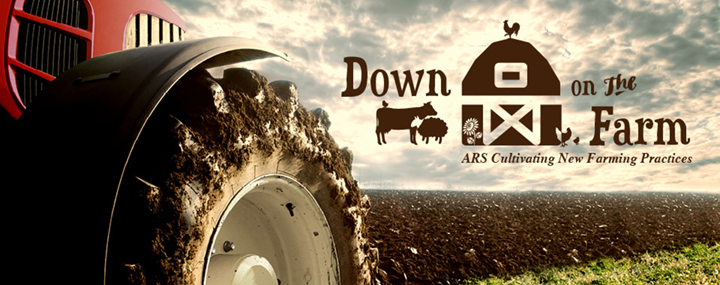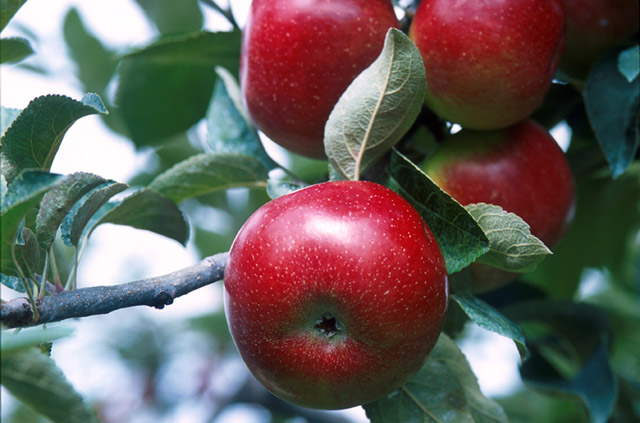
Precision Sprayer Benefits Growers and the Environment
"One size fits all." That's a common saying, but it's not always true, especially when it comes to spraying pesticides on crops. There are dozens of specialty crops, and different crops require different amounts of pesticide spray to achieve effective pest or disease control.
A team of Agricultural Research Service (ARS) scientists, along with several university partners, began a collaboration in 2009 to develop an intelligent spray-control system that uses laser vision (LiDAR) to map the size, shape, and foliage density of a tree or plant and then applies a custom-tailored dose of pesticide based on foliage volume. In contrast, typical crop sprayers apply a "one size fits all" dose of pesticide—which can result in waste and drift and raise costs.
Growers will be happy to know that the precision control system will save them money and can be retrofitted to their existing sprayers. "With the universal control system, growers themselves can upgrade their conventional sprayers to precision sprayers with intelligent functions rather than buying new sprayers, and sprayer manufacturers do not need to change their sprayer designs either," said ARS agricultural engineer Heping Zhu, who led the project. All that's necessary is to connect a variable-flow-rate solenoid valve to each nozzle; the other components are attached to the sprayer body without changing the sprayer structure.
 Apples are just one of many crops that can benefit from a new intelligent-sprayer control system, developed by ARS and collaborators, that reduces pesticide use, drift, and costs. (Photo by Peggy Greb, K9133-1)
Apples are just one of many crops that can benefit from a new intelligent-sprayer control system, developed by ARS and collaborators, that reduces pesticide use, drift, and costs. (Photo by Peggy Greb, K9133-1)
"Specialty crop growers across the country are very excited about this innovation, and quite a few voluntarily provided their own sprayers to join our field tests of pest control, system reliability, and repeatability," said Zhu, who works at the ARS Application Technology Research Unit in Wooster, OH. The system has been tested on apple, grape, peach, blueberry, pecan, raspberry, citrus, and nursery crops in nine different states and in Australia. You can see the system's variable-spray action in this video.
Field tests demonstrated that this new technology can provide pest and disease control that is equivalent to conventional spray systems while reducing spray drift by up to 87 percent, ground loss by up to 90 percent, and pesticide use between 30 percent and 85 percent, thereby resulting in annual chemical savings of $56 to $812 per acre, depending on crop types. This cost saving does not include labor and fuel.
Smart Guided Systems, LLC, in Indianapolis, IN, commercialized the intelligent spray-control system in 2019 under the name "Smart-Apply." Citrus, apple, grape, pecan, and nursery growers in the United States and other countries are now upgrading their sprayers with the commercial product. The pesticide-waste reduction made possible by the intelligent sprayer system is better for ecosystems and saves growers money, thus offering a sustainable and environmentally responsible approach to protecting crops.
The system is the culmination of a decade's worth of research and development. Collaborators include Ohio State University, Oregon State University, University of Tennessee, Clemson University, Texas A&M University, Iowa State University, Washington State University, Penn State University, and University of California. USDA's National Institute of Food and Agriculture and the Horticultural Research Institute also provided grants toward the development of this new technology.
In his keynote speech for the 2019 Impact Washington Summit, USDA Secretary Sonny Perdue highlighted the intelligent sprayer work as an example of ARS's advanced technology research that is positively affecting agriculture production.—By Sue Kendall, ARS Office of Communications.
